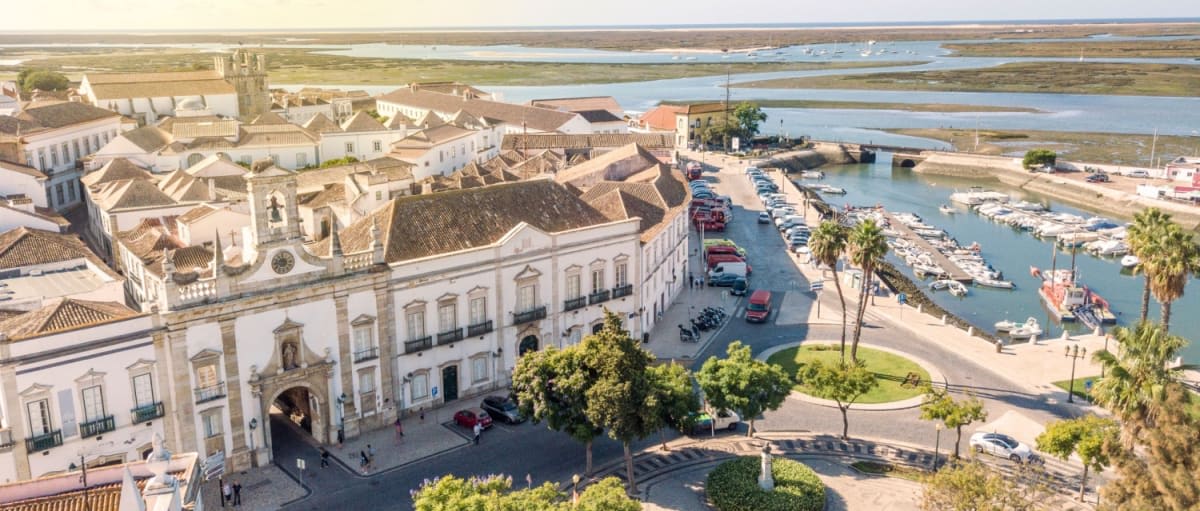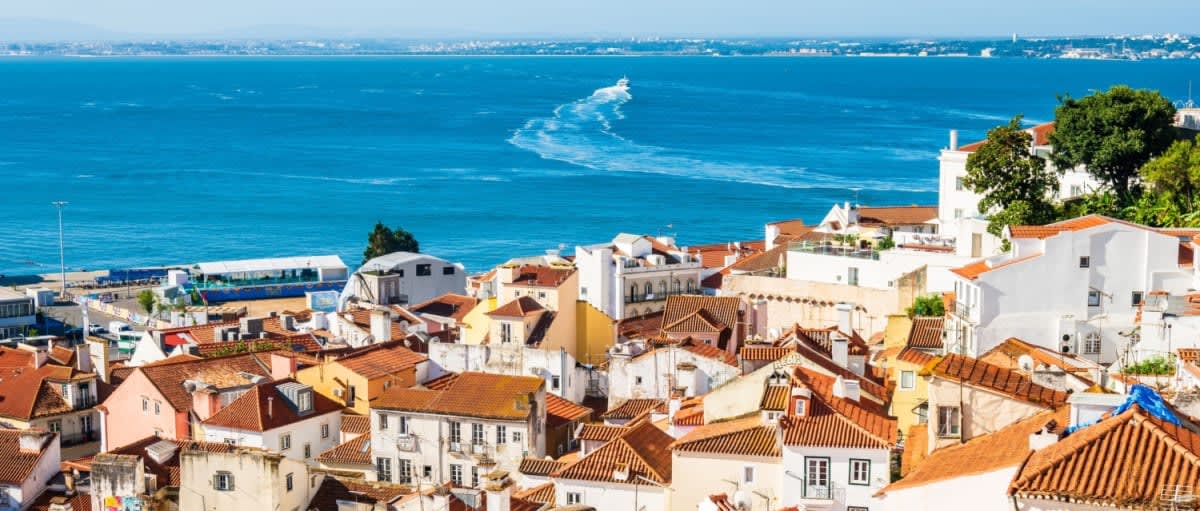Buying a property in Portugal is an exciting adventure – whether it’s your dream retirement home, a second home in the sun or a long-term investment. While prices remain attractive compared to much of western Europe, buying in a new country can expose you to hidden costs. Understanding the full financial picture early on can help you avoid unnecessary spending and get the best value for your money. That’s why it’s worth reading our money saving tips for Portuguese property.
Many of the biggest savings come not from haggling over the price, but from smart planning. That includes avoiding false economies, budgeting accurately and working with the right professionals, from legal experts to currency specialists.
Contents

Budget for extra costs
When buying a home in Portugal, one of the smartest financial steps is to plan well beyond the sale price. Additional costs can amount to 8–10% of the purchase price, so underestimating them early on could derail your budget.
The largest single expense is the IMT (Imposto Municipal sobre Transmissões Onerosas de Imóveis), Portugal’s property transfer tax. This is charged on a percentage of the property’s price, but it follows a sliding scale. Rates range from up to 5% for rural properties to 6.5% for urban homes, with some high-value urban homes incurring up to 7.5–8% in tax. The rate also varies by intended use – if it will be your main residence, you may pay slightly less. You can calculate exact values on the official Finanças Portal (Portuguese tax authority website).
You’ll also need to cover stamp duty at a flat 0.8%. Notary fees, registration and legal expenses typically range between 1.5% and 2% of the property’s value.
If you’re buying a new build, note that prices include 23% VAT (IVA). This is rarely added on top but may affect how much property you get for your budget.
Don’t forget bank fees, surveyor costs or mortgage expenses if applicable. And always factor in insurance, potential renovations and utility connections.
Plan all of these before you start property hunting. Buyers who only consider the asking price risk falling in love with a property they can’t afford once costs are added.
To help you get started, here’s our 2025 guide to saving money on your Portuguese home purchase.
Download the Portugal Buying Guide
Where to find affordable properties
Portugal is one of Europe’s most diverse property markets. From budget-friendly villages to buzzing city centres, there’s something for nearly every budget – if you’re prepared to do your homework.
The major tourist centres like Lisbon, Porto and central Algarve come with premium price tags. Instead, look east of the Algarve or further inland for better value. Towns such as Tavira and Vila Real de Santo António offer sunshine, scenery and community – without the crowd-driven inflation of the western Algarve. Discover what the Algarve has to offer away from the beaches.
On the west coast, the Silver Coast (Costa de Prata) offers striking beaches and authentic Portuguese towns at lower prices. Areas like Nazaré, Figueira da Foz and Alcobaça can be significantly more affordable than the south, yet remain well-located for transport links and amenities.
Looking inland often yields even greater savings. In the Alentejo and central Portugal, complete village homes can often be found for under €100,000 – some in need of renovation, others move-in ready. Whenever purchasing to renovate, be sure to avoid the potential pitfalls of buying property in Portugal. Properties such as traditional quintas (farmhouses) or former stone cottages can be transformed with modest investment.
Early-stage new developments can also offer savings. Developers eager to sell units will often offer early buyers promotional prices or permit design customisation without extra cost. Just be aware that early adoption may mean living alongside ongoing building works for some time.
For those willing to take on a project and invest sweat equity, renovation properties present big savings – make sure to factor in building permissions and costs for tradespeople.
How to negotiate effectively
Negotiating house prices in Portugal is not only accepted – it’s expected. Vendors often list with a margin, so there may be an opportunity to secure a better deal. The key is entering negotiations with solid knowledge and clear communication.
Start with research. Use our property portal to compare asking prices across regions and filter by property type, size and location. This helps identify what similar homes are truly selling for, not just what agents are asking.
You can also consult the Certidão Predial Permanente (property registry certificate) and check the cadastral value at the local land registry office. This will give you useful background when assessing whether a property is genuinely priced in line with the area.
Look at how long the property has been on the market. Homes listed for an extended period may be ripe for negotiation – especially if the owner has already dropped the price once.
It also helps to understand market conditions. High inventory and low turnover may signal a buyer’s market. Your local estate agent should give insight, but always validate this with independent research.
Make offers based on substance, not speculation. Presenting a realistic counteroffer backed by evidence makes you more credible in the eyes of both the seller and their agent. For example, you could say: “I’ve seen similar properties with updated kitchens selling for 10% less. With that in mind, I’d like to offer €X subject to inspection.”
Lastly, if you’re a cash buyer or already mortgage-approved, make this known – your ability to move quickly can sweeten the deal.
Best time to buy property in Portugal
While there is no single “cheapest” time to buy property in Portugal, seasonal trends and market behaviour can offer opportunities for savings depending on your goals and timeline.
Autumn and winter typically bring less buying competition. The cooler months outside the peak tourist season see fewer visitors and less buyer activity – sellers who need to move may become more open to offers. From November to February, you may find the market more flexible, giving you a better chance to negotiate.
However, this off-season advantage comes with reduced inventory. Fewer listings may be available, and viewings might be limited by weather or holiday closures.
Spring and summer, especially March to July, bring fresh listings to the market and are popular periods for second-home seekers. But more buyers also mean more competition and upward pressure on prices.
Buying late in the financial year could be strategic for tax planning. Portuguese IMT and other duties are usually calculated at the time of completion, so completing before 31 December may affect how you organise your finances for the following year.
If you’re purchasing for rental income, you may want to buy just ahead of the tourist season (April or May) so you can advertise and rent out the property straight away rather than carrying empty property costs across several months.
Finally, monitor interest rates and currency exchange. If you’re converting from pounds or another non-euro currency, currency markets can sway your final cost by thousands. A sudden rate swing may shift the ‘best time’ to buy far more than any seasonal trend, so it’s wise to speak to a currency specialist early. Book a call with Smart Currency Exchange, our partners, to find out how they can protect your purchase.
Need help planning your purchase?
At Your Overseas Home, we’re committed to giving international buyers the guidance and support they need to buy with confidence. From finding the right region to connecting you with trusted property professionals, we make your buying journey smoother, safer and more informed. Book a call with one of our consultants today.
From planning for taxes to picking the right time to buy, there are many ways to reduce costs without cutting corners. For even more guidance, take a look at our expert advice on where to buy property in Portugal to find high-value locations that suit your needs, and follow our full guide on how to buy property in Portugal to help you save money at every step of the journey.
Frequently asked questions about saving money when buying property in Portugal
By planning for taxes, legal fees and renovation costs early, negotiating effectively and using a currency specialist to avoid poor exchange rates, you can significantly reduce your total spend.
Affordable areas include the eastern Algarve, the Silver Coast and inland regions like Alentejo and Central Portugal. These offer better value than Lisbon or the central Algarve.
Yes, negotiations are common and often expected. Sellers typically list with a margin, so a well-informed offer can help you get a better deal.
Autumn and winter often present better negotiating opportunities due to reduced buyer activity, although listings may be fewer during this time.
Fluctuating exchange rates can alter the euro value of your purchase by thousands. Using a specialist like Smart Currency Exchange can help protect your budget.









